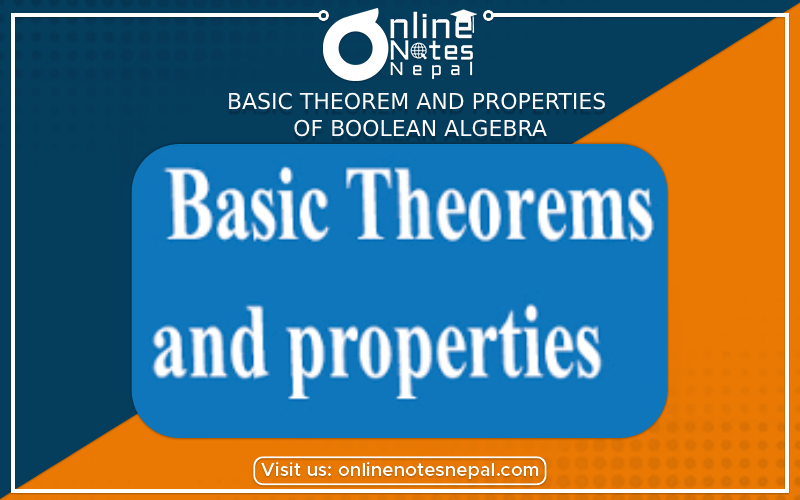Published by: Dikshya
Published date: 09 Jul 2023

Boolean algebra is a mathematical framework used to analyze and manipulate binary variables and logic expressions. It is named after mathematician George Boole and serves as the foundation of digital logic design and computer science. Boolean algebra has several fundamental theorems and properties that govern its operations. Here are some of the basic theorems and properties of Boolean algebra:
Idempotent Law:
The idempotent law states that applying an operation (either OR or AND) to a variable with itself results in the variable itself. In other words, performing the operation multiple times does not change the value.
Identity Law:
The identity law states that combining a variable with the identity element (0 for OR, 1 for AND) results in the variable itself. These elements act as neutral values in the respective operations.
Null Law:
The null law states that combining a variable with the null element (1 for OR, 0 for AND) results in the null element. These elements act as absorbing values in the respective operations.
Complement Law:
The complement law states that combining a variable with its complement (denoted by a prime, ' or ¬) results in the identity element for OR (1) and the null element for AND (0).
Commutative Law:
The commutative law states that the order of variables can be changed without affecting the result of the OR or AND operation.
Associative Law:
The associative law states that the grouping of variables can be changed without affecting the result of the OR or AND operation.
Distributive Law:
The distributive law describes the relationship between AND and OR operations. It states that an AND operation distributes over an OR operation and vice versa.
De Morgan's Laws:
De Morgan's Laws define the relationship between complements and the operations of OR and AND. They state that the complement of an OR (AND) operation is equivalent to the AND (OR) operation of the complements of the variables.
These theorems and properties form the foundation of Boolean algebra and are used to simplify and manipulate logic expressions in digital logic design, Boolean function analysis, and circuit optimization. They provide a set of rules to reason about and manipulate binary variables and logic operations.